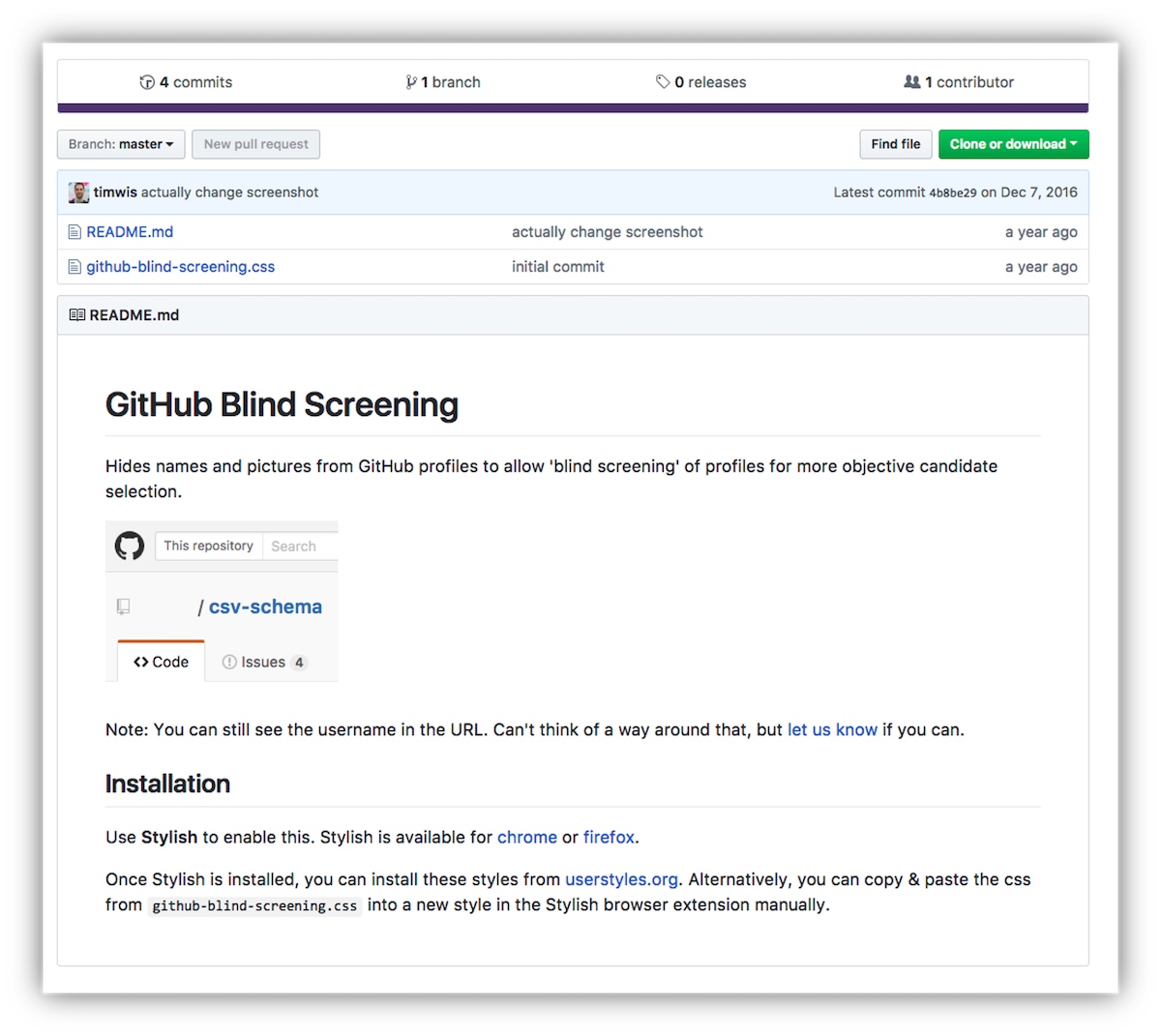Picture, for a moment, a web developer.
What does your mind conjure up? It’s quite possible that your pattern for a web developer is “skinny white dude.” It’s what you’ve seen depicted on TV and in movies. It’s what you may very well see in your office or other offices you’ve worked in. In no way, shape, or form do you believe that skinny white dudes are better programmers, but the pattern is there, dormant, in that part of your brain that makes 95% of the decisions.
Now imagine you’re hiring a web developer. When you see a name at the top of a resume that doesn’t map to “skinny white dude,” something in the back of your head makes you want to give that resume the side-eye. It could be a perfectly good resume, but now it has to overcome the bias that got triggered when you saw that name, not because you’re sexist or racist (you voted for Obama AND Hillary, fer cryin’ out loud!) but because the name doesn’t fit the pattern, and the pattern (secretly, non-consciously) rules all.
In study after study, when identical resumes are presented to the same hiring manager with the only difference being the name at the top, in male-dominated fields, resumes with male-sounding names are more likely to go further in the process than ones with female-sounding names. Similarly, Black applicants who “whiten” their resumes to remove all references that could potentially be read as “Black-ness” get callbacks at two and a half times the rate of counterparts who don’t.
But what if there were no name at the top of that resume? What if all you could see was the information that was relevant to hiring? Welcome to the anonymous resume.
Tim Wisniewski, former chief data officer of the City of Philadelphia, told me what most surprised his team about their experience with anonymous resumes. First, when hiring a web developer, the city learned that the best way to anonymize a resume, even in the high-tech world of web development, was to physically print out the resume and have an intern (or someone with no stake in the hiring process) physically redact the personal information with a marker, just like a CIA document.
Second, when the hiring managers found a resume they liked, they would typically go to GitHub to view that developer’s profile, which, when loaded, would immediately reveal all of that applicant’s personal info, thus ruining the experiment. So, clever people that they were, they wrote a Chrome plugin that would redact the information as it loaded. (Thank God for structured content!) To complete the circle, they put that code back on GitHub, where you can use it yourself if you ever want to give anonymous hiring a go.

So, a key design choice in a resume can be altered after the fact to lead to fairer outcomes for applicants. (And it might be worth rethinking the original design of the resume in the first place.)
When Conshohocken-based experience design firm Think Company, tried anonymous hiring for the first time, they noticed that the items that needed to be anonymized were not always what you’d expect. Even knowing where a developer used to work could be biasing. It’s tempting to assume that a developer who used to work at Facebook is inherently smarter than a developer who used to work at a company you’ve never heard of when, in fact, there’s zero evidence to suggest that this is the case. Thus, even removing the names of the companies could be valuable in the first few rounds of review.
Similarly, colleges and universities can be deceiving. An Ivy League school on a resume might engender a favorable feeling toward a candidate, even non-consciously. But remember: both George W. Bush and Barack Obama attended Harvard University, and it would be difficult to find two more different candidates for the same job.
Part of the reason seeing familiar colleges and companies on resumes can be so misleading is because of the mere-exposure effect, which occurs when you like something simply because you’ve seen it before. What’s remarkable about this effect is that it works even if you don’t remember seeing the thing before!
There’s an experiment where people who don’t know how to read Chinese are shown a bunch of Chinese characters, then shown another set of Chinese characters, some of which were in the first set. They are asked to guess which characters have positive connotations. Folks are more likely to select the characters they saw in the first set as having positive connotations, simply because they saw them before, than the ones they’d never seen before.
As designers, we’re used to finding clever ways to reveal information to the user. But anonymous resumes challenge us with the notion that sometimes less information can lead to better decisions. We need to find artful ways to conceal information that might be biasing, even if true.







